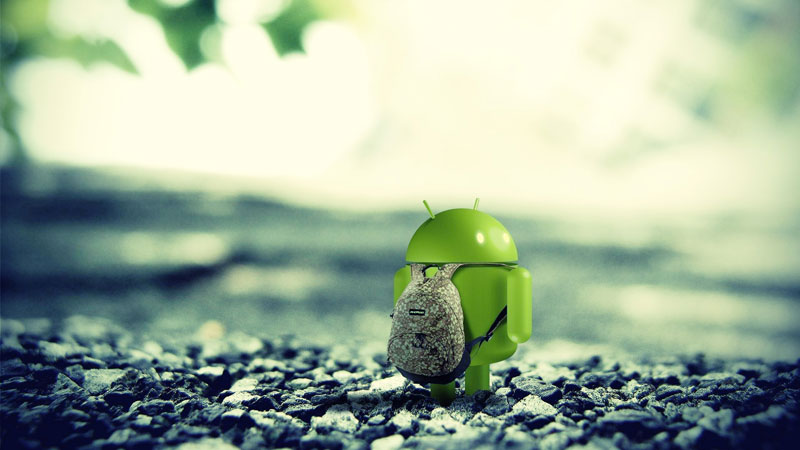In the 1950s, Canadian media theorist Marshall McLuhan predicted that the world would become what he called “a global village”, which means we would develop a more global consciousness and culture that would transcend traditional boundaries of identity.
While few people under the age of 40 remember McLuhan today, his influence is everywhere. He invented media theory, the idea of technological modernity and his work offers guidance in a confusing time of massively accelerated change.
McLuhan foresaw that people crammed together in cities would want to escape from the boredom and the alienation of urban life by spending their leisure time observing other people’s private lives through electronic devices.
Today, I’m sure he would be shocked by just how hypnotized people are by their screens. It would have been hard to imagine a few decades ago that billions of people would spend their free time scrolling through social networks to observe the lives (a.k.a. highlight reels) of their friends, acquittances and even complete strangers on social networks.
It’s a strange culture we find ourselves in today.
While it’s often difficult to understand this rapidly changing world we inhabit, McLuhan provided a brilliant analysis to understand how the dominant medium of each technological age mediates our experience of the world and changes the way we perceive ourselves and relate to each other.
Re-Tribalization In The Global Village:
What I find most interesting about McLuhan’s work and media analysis is he actually thought most of these changes were bad:
“The closer you get together, the more you like each other? There’s no evidence of that in any situation that we’ve ever heard of. When people get close together, they get more and more savage, impatient with each together….The global village is a place of very arduous interfaces and very abrasive situations.”
His argument was that Western civilization had become progressively de-tribalized since the invention of the printing press and the rise of mass literacy but that electronic media would lead to a re-tribalization that would have disastrous consequences for social cohesion.
In his work, he contrasted the two most dominant modes of social culture found in human societies:
1. Tribal
Pre-literate cultures are tribal.
Tribal people inhabit a sensual, dynamic and non-linear world. Reality is taken in through all the five senses, words are seen as a kind of magic, and the emphasis is on communicating knowledge through oral storytelling.
Tribal cultures are inward-looking, collectivist and often hostile to other cultures.
2. Literate
Modern cultures are literate.
They evolved from the development of the printing press and mass literacy, which imposes linear thought and reliance on sight at the expense of other more interactive senses. Literate cultures place an emphasis on communicating knowledge through written language and abstract ideas.
Literate cultures are outward-looking, individualist, and generally less hostile to other cultures.
For tribal cultures, ideas such as individualism and privacy are inconceivable while literate cultures are focused on individualism, which McLuhan argued acts as a kind of emotional anesthetic making literary people “crude and numb in their perceptions, compared with the hyperesthesia of oral and auditory cultures.”
While the individualism and literacy of what he called “Western man” lead to the rise of the modern world based around logic and order, he argued the age of electronic media would have a re-tribalizing effect on Western culture that would alter sensory patterns and return literate people to a tribal, emotionally volatile state.
Here’s what he said in his prophetic Playboy interview in 1969, which I highly recommend reading to fully understand the sheer brilliance of his way of thinking:
“The electronically induced technological extensions of our central nervous systems, which I spoke of earlier, are immersing us in a world-pool of information movement and are thus enabling man to incorporate within himself the whole of mankind. The aloof and dissociated role of the literate man of the Western world is succumbing to the new, intense depth participation engendered by the electronic media and bringing us back in touch with ourselves as well as with one another. But the instant nature of electric-information movement is decentralizing——rather than enlarging——the family of man into a new state of multitudinous tribal existences. Particularly in countries where literate values are deeply institutionalized, this is a highly traumatic process, since the clash of the old segmented visual culture and the new integral electronic culture creates a crisis of identity, a vacuum of the self, which generates tremendous violence——violence that is simply an identity quest, private or corporate, social or commercial….”
Incredibly, McLuhan was saying this decades before the invention of the World Wide Web and the mobile revolution that massively accelerated this process.
What we’re seeing today is a re-tribalization of literate Western people but much of it is happening beyond the traditional boundaries of human culture: race, ethnicity, family, religion, and gender.
In fact, many of the more radical communities forming among the dispossessed and underemployed are openly hostile to traditional human cultures and Western values like freedom of speech and association. People’s frustrated identity quest can lead them to the violence of nihilism and self-destruction.
The roots of today’s political correctness and outrage culture are in the literate culture’s intellectual guardians trying to combat the re-tribalizing effect of electronic media. But this has limited effects because most highly academic individuals live in their heads inside the strict walls of institutional orthodoxy and struggle to relate emotionally with the average person.
This means their ideas and assumptions are rarely effectively tested in the real world, which can lead to very destructive errors in judgment. In the eloquent words of George Orwell, “some ideas are so stupid that only intellectuals believe them.”
To make matters worse, we are increasingly stuck in Internet filter bubbles and safe spaces without exposure to different ideas and perspectives. We are seeing the rise of many new interest and identity groups that are re-tribalizing and losing compassion and tolerance for those who think, believe and act differently.
If the massive debt bubble around the world bursts as expected, you can expect that these new kinds of digital tribes will become even stronger, more isolated from reality, and even more hostile to different ideas and perspectives (see groupthink).
This has very important implications for both keeping the social order and maintaining your sanity in the increasingly interconnected global village.
Finding Community In The Global Village:
We form our identities through our relationships with other people and our environment but what shapes a strong and healthy identity is service to others and a sense of belonging in a meaningful community.
While communities once referred to people living in relatively close proximity to each other, now they are becoming digital and global in that we are increasingly socializing with a global group of friends and colleagues on our electronic screens.
In the search for identity and belonging in a post-modern digital world that seems increasingly empty and lonely, people are forming new kinds of global tribes with likeminded people who share their interests and values across traditional borders.
We are becoming both literate and tribal because of the sensory environment we inhabit. Our time is increasingly spent on our smartphones or inside video games, virtual worlds, and social networking websites where we are not in the real world but in a highly simulated and algorithmically managed reality.
What does this mean for the future? Let’s just say buckle up because the next decade is going to be a wild ride as all these changes are going to continue to rapidly accelerate.
21st Century Tribes?
The world needs a new kind of tribes and it needs courageous individuals who are willing to step up and lead.
We live in a world today where we lack good leadership and most leaders in government and corporation are stuck in the mentality of the past. It’s time for a new generation to step and lead.
I believe we can create new tribes that give people a sense of community and belonging so people don’t become stuck in ideologically-slanted filter bubbles.
Smartphones can be black mirrors that reflect our narcissism back to us or they can be tools for creativity, passion and sharing our values and mission with the world.
Learn how to tell your story and build your tribe with video storytelling.
- Flow Experience Design: 20 Flow Triggers For Peak Performance - May 10, 2025
- How The Muse S Athena Works For EEG And fNIRS Neurofeedback - April 24, 2025
- The 10 Best Pomodoro Timer Apps For Remote Workers - April 11, 2025





 This website uses cookies to improve your web experience.
This website uses cookies to improve your web experience.